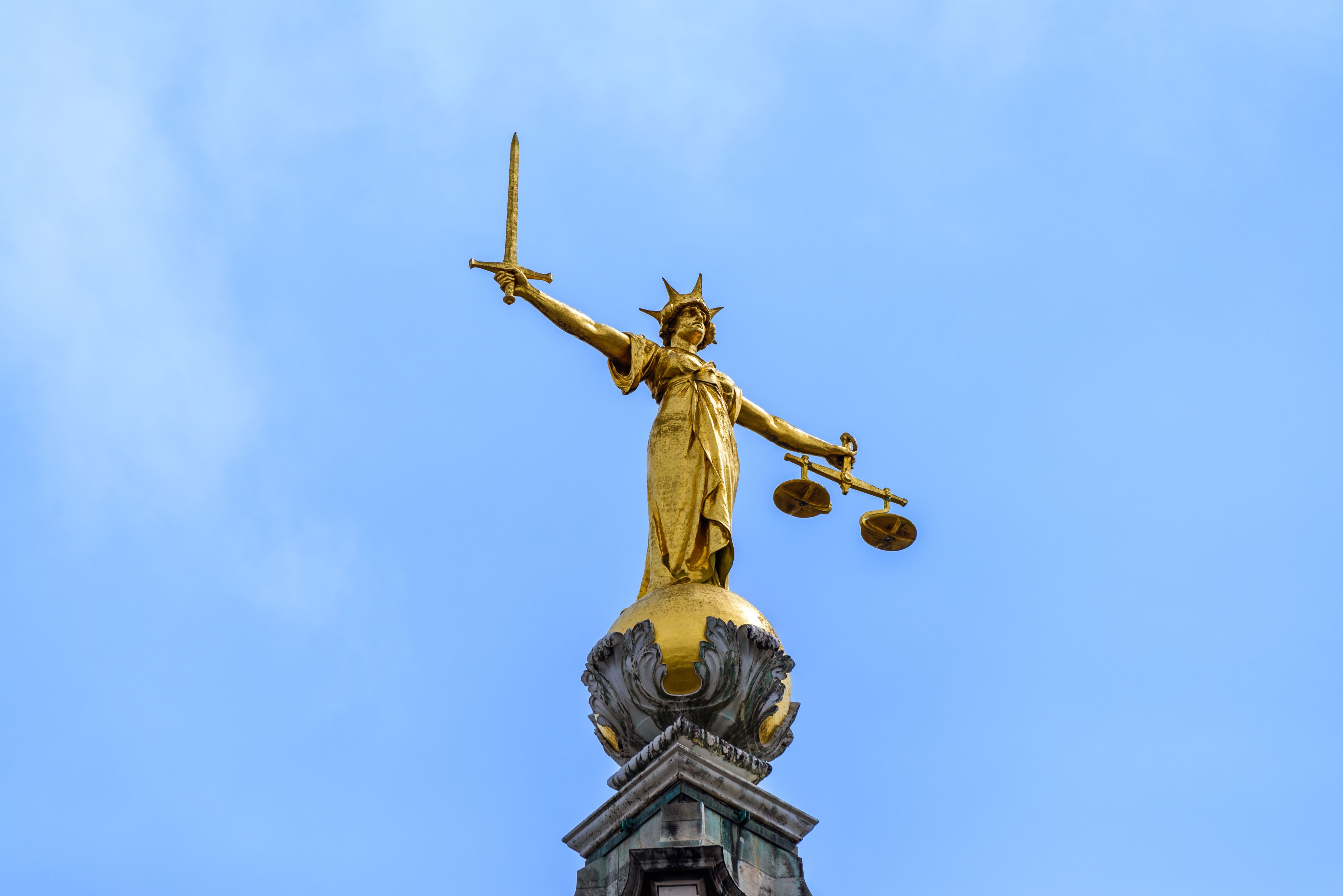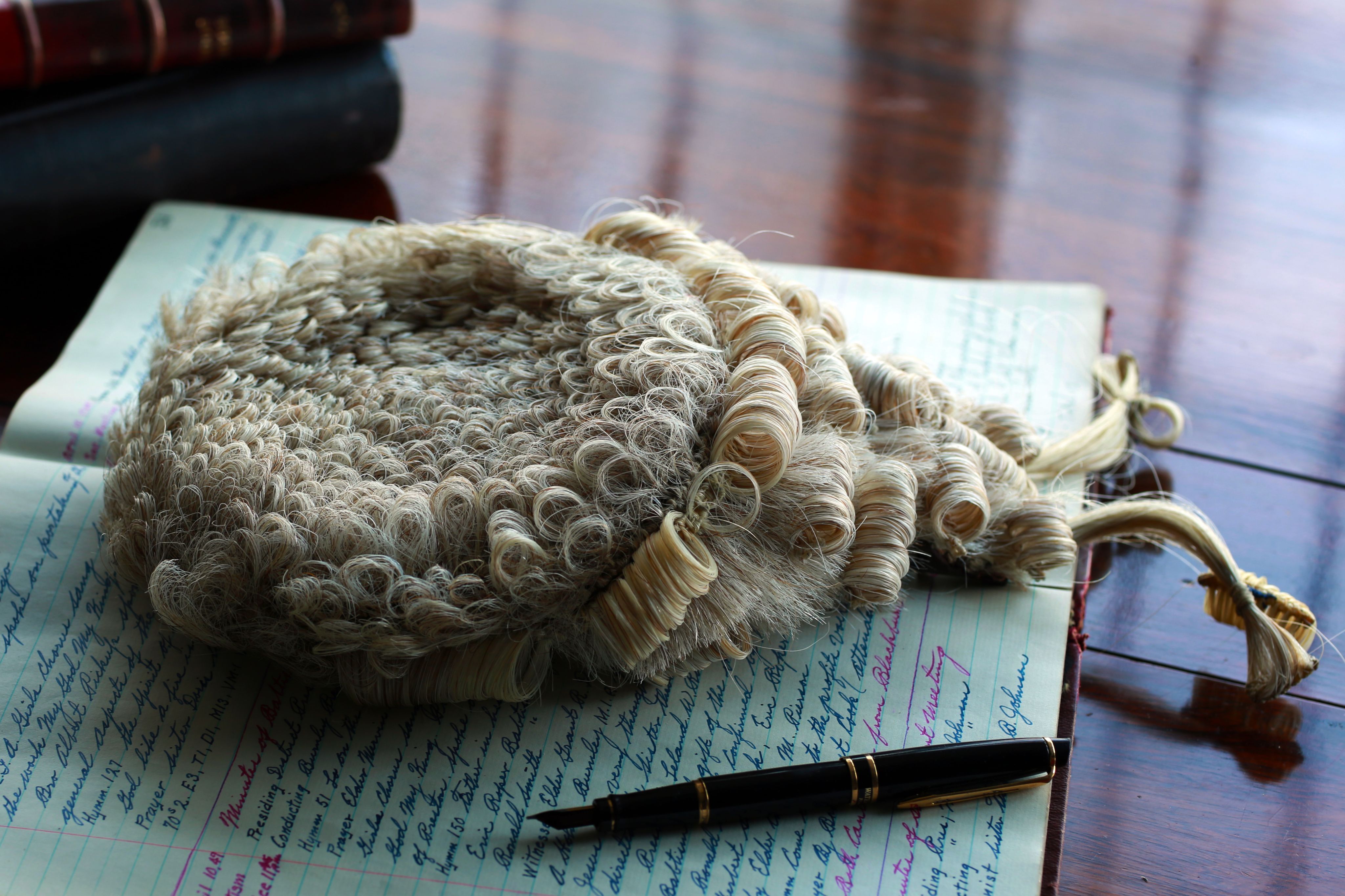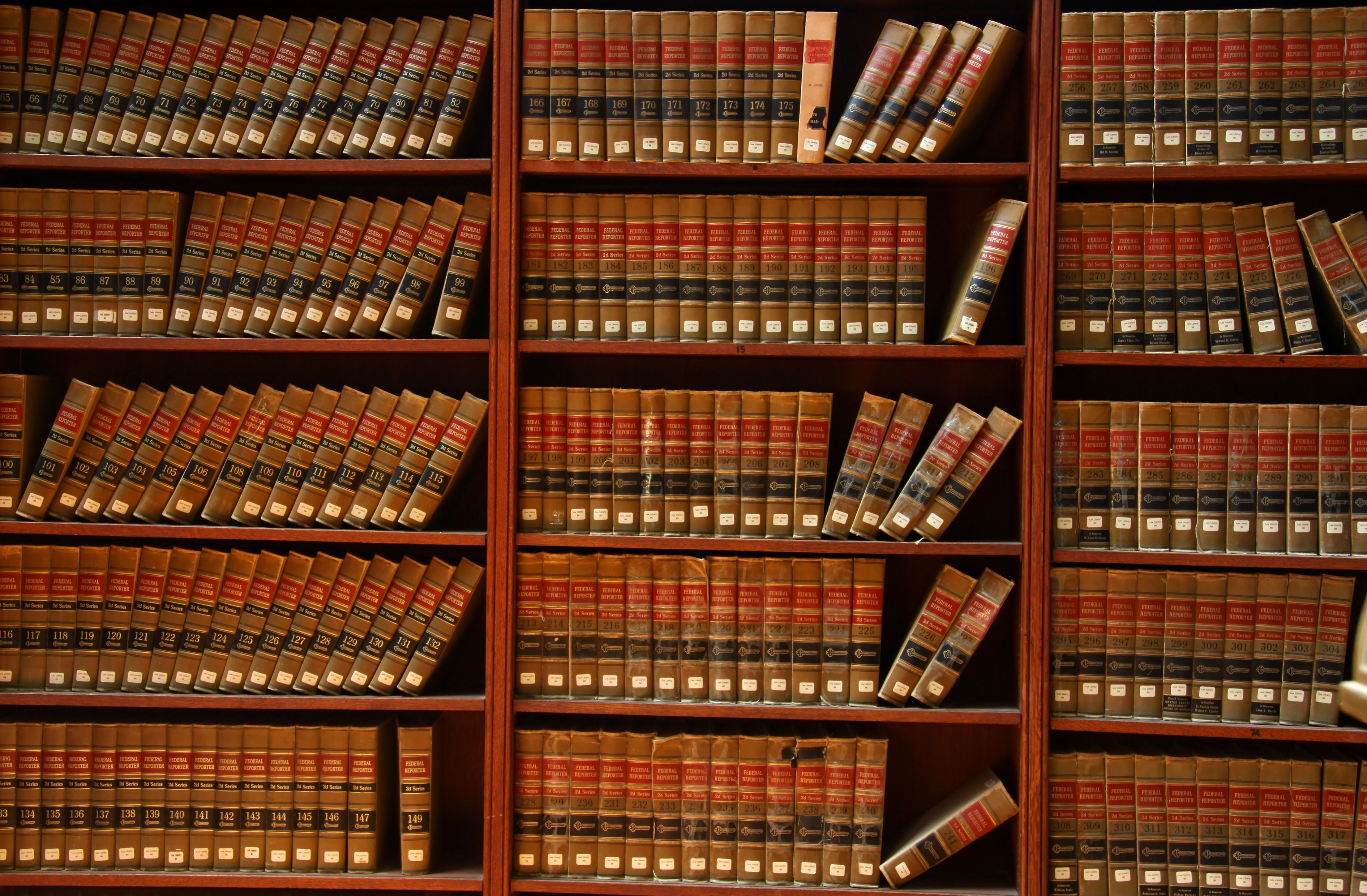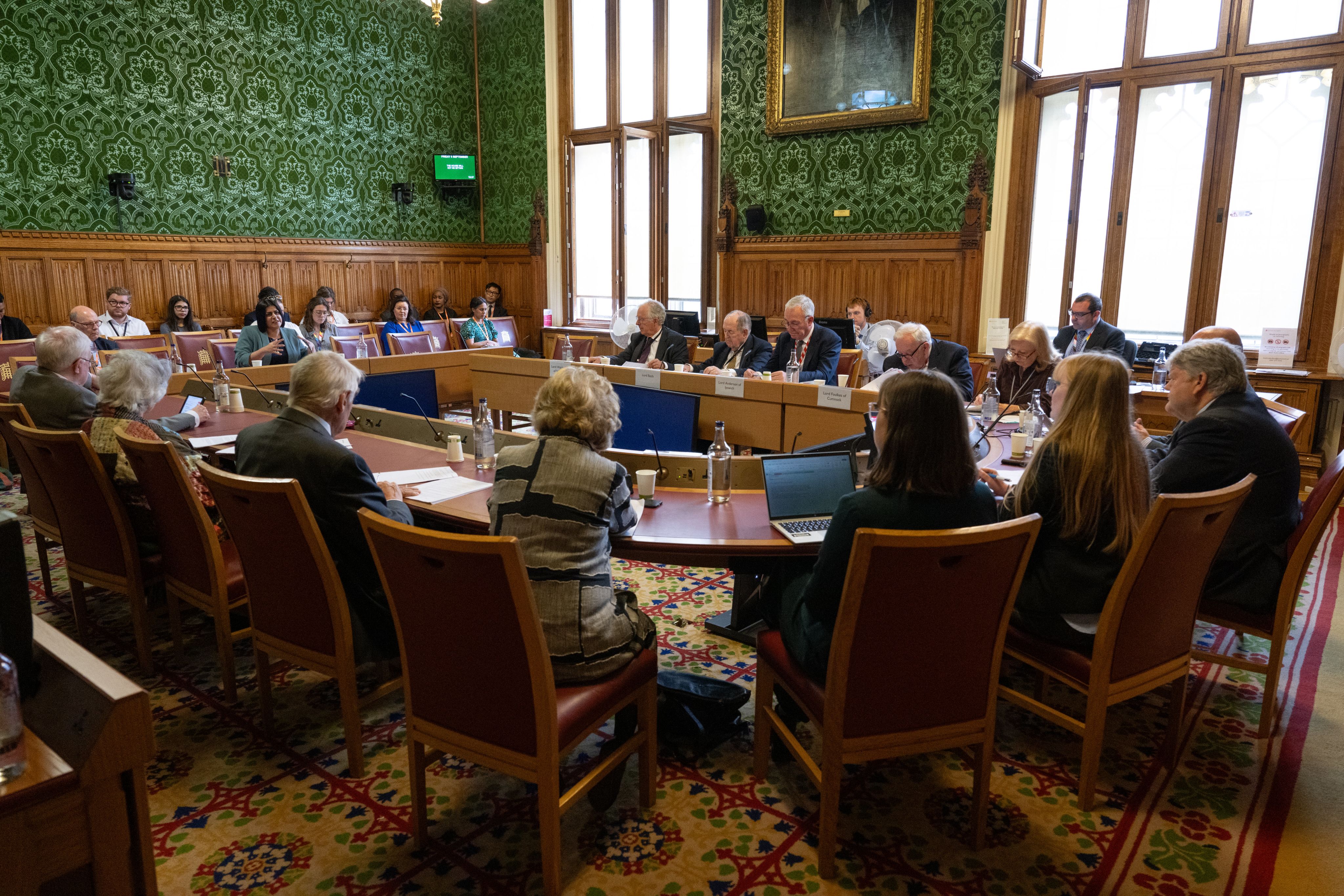The rule of law is under threat in the UK
How can we protect this key constitutional principle?

The UK has a strong rule of law tradition of which we should be rightly proud.
We have an enduring reputation as a country that is committed to the rule of law at home, and active in fostering it abroad.
However, increasingly, people in the UK do not think that the rule of law is operating as it should. They think that this important shared value is breaking down and no longer trust it to protect them.
This is also happening in a global context in which several countries have witnessed significant challenges to, or sometimes even a breakdown of, the rule of law in recent years.
This serves as a strong reminder that we must not be complacent about the health of the rule of law in this country, and that we must take active steps to protect it.
What is the rule of law?
The rule of law is one of the five basic tenets of our constitution.
It is not, however, just an abstract constitutional principle. It has significant practical impact on our everyday lives – enabling the existence of a peaceful and stable society, underpinning democracy, and supporting a thriving economy.
We think that the rule of law is best understood as a culture in which everyone:
- Acts within the law and can rely on other people, including those in positions of power, to do the same, and, if not, to be held to account.
- Is treated fairly before the law.
- Has the benefit of independent judges who resolve disputes and decide questions of law without bias or external influence.
- Is able to find out what the law is, and how it applies to them.
- Is able to access a fair system in which they can obtain justice, resolve disputes, and protect their rights.
We want to live with this culture and sense of values, because otherwise we will see mob rule and anarchy taking over.
In our report, we set out action that the Government must take to prevent further erosion of the rule of law, and to protect it against further challenge.
1. Fairness and acting within the law

“Public reactions to high-profile instances, such as Horizon/Post Office Workers scandal, Partygate, the Hillsborough disaster, and the Grenfell Tower tragedy, demonstrate a deep-rooted belief in the importance of accountability and fairness.”
Our rule of law culture has at its heart a belief in fairness and justice. It relies on people feeling that everyone, including governments and powerful organisations or individuals, acts within the law and is held to account if they break it.
This culture is being challenged by an increasing sense that there is a growing number of people who are breaking the law with impunity. This is linked to declining trust in those institutions responsible for upholding the rule of law.
The police, for example, is charged of having effectively ‘decriminalised’ some offences. Others are concerned about bias and discrimination, and of the police engaging in ‘two-tier policing’. Even though, in some cases, these charges are not supported by the evidence.
Prominent examples of people flouting the law without facing any consequences damages belief in the rule of law and, in turn, risks the breakdown of ordered society. The increasing prominence of petty crime evident in recent years is, therefore, an insidious threat to the rule of law.
All government ministers have a responsibility to uphold the rule of law and to seek to ensure that their policies and decisions are compliant with the law. This includes compliance with the state’s international treaty obligations.
2. Judicial independence

“If people think that the judiciary is biased and represents only a certain perspective or group of people within the country, why would they follow a particular court order?”
Public confidence in the judiciary is vital for trust in the fair administration of justice. It requires both that judges make decisions independently of bias and external influence, and that they are perceived to do so.
This confidence is being increasingly challenged by political rhetoric that criticises individual judges, suggesting that their decisions are influenced by their political opinions. It has become part of mainstream political conversation and is being amplified on social media.
In reality, judges take decisions on the basis of the law. Whilst critiquing judgments and the law underpinning them is entirely appropriate, it is inappropriate to attack individual judges or the judiciary as a whole.
Attacks on judges are translating into threats to their safety. They should be able to carry out their jobs without fear.
Government ministers must set the tone and avoid using rhetoric that vilifies the judiciary or individual judges. The Government should step in to defend the judiciary when it is facing attack from politicians or the media.
3. Legal certainty and accessibility

“[in immigration law] things get really, really complicated very quickly because the immigration legislation changes all the time … I’m an advisor and I’m struggling to keep up. I don’t know how non-lawyers keep up with it.”
We need to understand what our legal obligations are, both as individuals and organisations, in order to be effectively governed by them.
When the Government drafts legislation it seeks to produce ‘good law’ but the law has become so complex as to be impenetrable to most people. This is due, in part, to the sheer volume of legislation, not all of which is needed.
There has also been a significant increase in the use of delegated legislation, which receives significantly less parliamentary scrutiny than bills do.
Parliamentary scrutiny is vital for identifying and addressing rule of law concerns with legislation. As the Constitution Committee, we play a role in this process, scrutinising every bill for its constitutional implications.
The law itself must be accessible and clear. The Government should avoid introducing additional complexity into the statute book unnecessarily, and it should not seek to bypass parliamentary scrutiny through the excessive use of delegated legislation.
4. A fair justice system

“I am very seized of the fact that the system in this kind of crisis, whether it is in prisons or in the Crown Court, is not worthy of the name ‘justice’.”
The justice system is in crisis. Since the COVID-19 pandemic, it has been beset by delays and backlogs, which have now reached a record high. In the Crown Court, the backlog now stands at nearly 80,000 cases. This means that people can wait years for their cases to reach court.
Accessing legal advice and representation is expensive, and it is simply unaffordable for many people.
Significant cuts to the legal aid regime in the Legal Aid, Sentencing and Punishment of Offenders Act 2012 continue to have a lasting impact.
“Complete sections of our society and communities have, in effect, no real access to the law. They are disempowered as far as the law is concerned.”
Many people fall into the ‘justice gap’ by which they are ineligible for legal aid to help with their legal costs, but they cannot afford to pay for it themselves. The result is an increase in the number of individuals who do not receive the legal help that they need and may even end up having to represent themselves in court.
The challenges facing the justice system, which also include overwhelmed legal advice services and difficulties with enforcement of court orders, are damaging the public’s confidence in the justice system and in their ability to uphold their legal rights.
The Government must urgently take decisive action to tackle delays in the courts. This should involve consideration of innovative solutions, exploring the adoption of new technologies across the justice process, the role of alternative dispute resolution, and increased support of advice services.
What happens next?

We have made our recommendations to the Government and it now has two months to respond to our report.
Read the full report on our website.
Find out more about our inquiry and our committee.
Follow us on LinkedIn or X (formerly Twitter).
Cover image: Alex Segre - stock.adobe.com